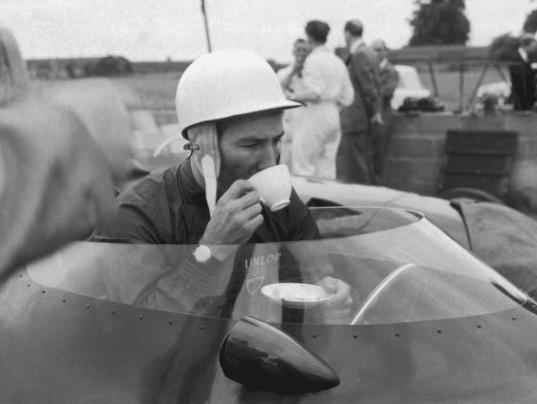I was reading an interesting article the other day about the perceived femininity of “tea” … with which I had to agree. In this country, except for the ready-to-drink bottled iced tea products, advertising is targeted primarily to women over the age of 35. If you ask someone to describe an image of “tea drinking”, they’ll probably describe two women sitting at a table drinking from bone china tea cups and saucers, perhaps sharing a plate of cookies. Mention “tea” to most people and you’re likely to hear “when I’m not feeling well, I’ll have a cup” … “my mother used to give it to me when I had a cold” … “no thanks, I’m a coffee drinker”.
Tea is still perceived to be a ‘snobby’ or ‘aristocratic’ beverage. Tea houses also continue to be perceived as feminine ‘women-owned’ and operated establishments for the sole enjoyment of tea for women by women. Unfortunately, many men I know will not accept an invitation to a tea house, because of that perceived femininity.
Sadly, tea does have a feminine image … in this country. Around the world, however, it is completely different. In India, China and Sri Lanka, tea is a male-dominated industry. For the most part, tea plantations are owned by corporations, managed primarily by men. Although women have begun to crack the glass ceiling a bit, auction houses are still dominated by men. The highly-regarded profession of tea tasting is another male-dominated segment of the tea industry. You may see men in the fields transporting the freshly plucked leaves, but it is women who are in the fields plucking the leaf. You’d be hard pressed to see a woman manager at any of these plantations. The heavy equipment in the factories are all operated by men while the women sit at tables sorting the leaf.

Visiting a tea sorting room in China.
Again, in every other country, tea is prepared by men, shared and enjoyed by men. There is no ‘perceived femininity’. In the middle East, haggling over a purchase doesn’t even begin until the tea is served. Chaiwallahs in India are men who each day prepare and serve this spicy, rich elixir. The American Revolution began with the Sons of Liberty making a political statement by throwing crates of tea into Boston Harbor. In Japan, Samurai warriors were masters of the Chanoyu tea ceremony, brewing tea before discussing important matters of state. The “mustache cup” was invented during Victorian times so that men who sported virile, elegantly-shaped mustaches could drink their tea without the fear of the wax melting.

In her 1951 book, A Thirst for Empire: How Tea Shaped the Modern World, after surveying men and women, in this country, of all ages , author Erika Rappaport reported that 72% of them “believed tea was for women.” Sadly, that perceived femininity of tea still exists. So why is it in this country, in order to have men drink tea, the feeling is that we need to create either a ‘manly-blend’ of tea, or we need to have a marketing campaign to convince men that tea isn’t ‘for women only’. Well, it has happened.
After doing a little research to see if there were any “man-only” tea blends available, I came across two, which I found interesting. (I’m sure there are others.) One product is pretty straight forward, with the masculine name of Man Tea. Yup, a full-bodied blend, packaged for and with an advertising campaign targeted specifically to … men. There will be no confusion with this message: “Man Tea is designed for those looking to increase their physical strength and health … increasing stamina and strength, enhancing energy, calming digestion, etc.”
Another new tea with a very masculine-sounding name is Ekön, “the first ever functional tea line designed for men.” What is Ekön’s message? Providing men with the opportunity to drink loose leaf tea “without the stigma, the embarrassment, or the feeling that you’re less of a man.” With blends called “Clean Machine”, “Pound Hacker” and “Dayholic”, they’re obviously trying to appeal to the testosterone-building male.
 Over the years I think many other companies have tried to target the male-tea drinker, in the hopes of building that base. The only product which appears to have gained mass appeal is the ready-to-drink iced tea market. Arnold Palmer certainly has crossed the gender barrier with his now hugely popular iced tea line. Lipton has tried over the years with lesser success with Dallas Cowboys quarterback, Don Meredith, as the spokesperson.
Over the years I think many other companies have tried to target the male-tea drinker, in the hopes of building that base. The only product which appears to have gained mass appeal is the ready-to-drink iced tea market. Arnold Palmer certainly has crossed the gender barrier with his now hugely popular iced tea line. Lipton has tried over the years with lesser success with Dallas Cowboys quarterback, Don Meredith, as the spokesperson.
I can certainly expound on all the health benefits of tea (rich in antioxidants and polyphenols), and why everyone should be drinking it … regardless of gender, age, or physical limitations. But, this discussion was purely on whether there is gender inequality in “tea”. And, yes, I believe, in this country, the perception does exist. What do you think?
_____________________________________________________________________________
